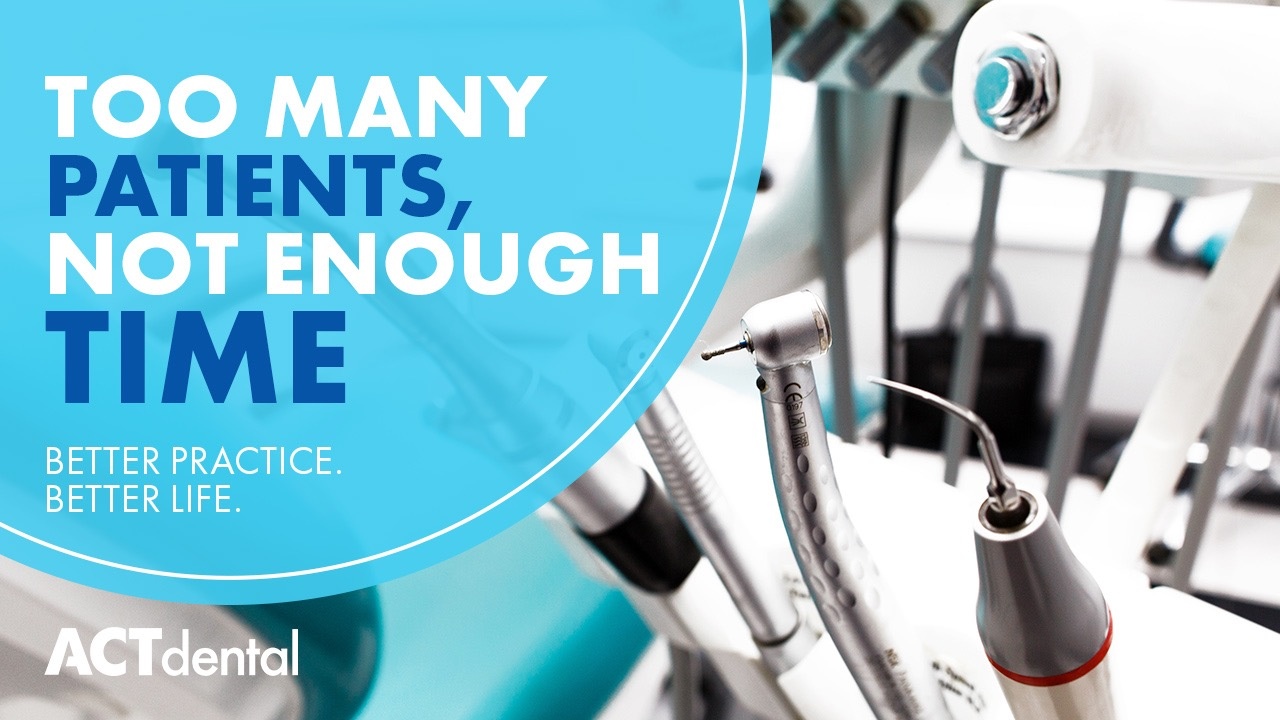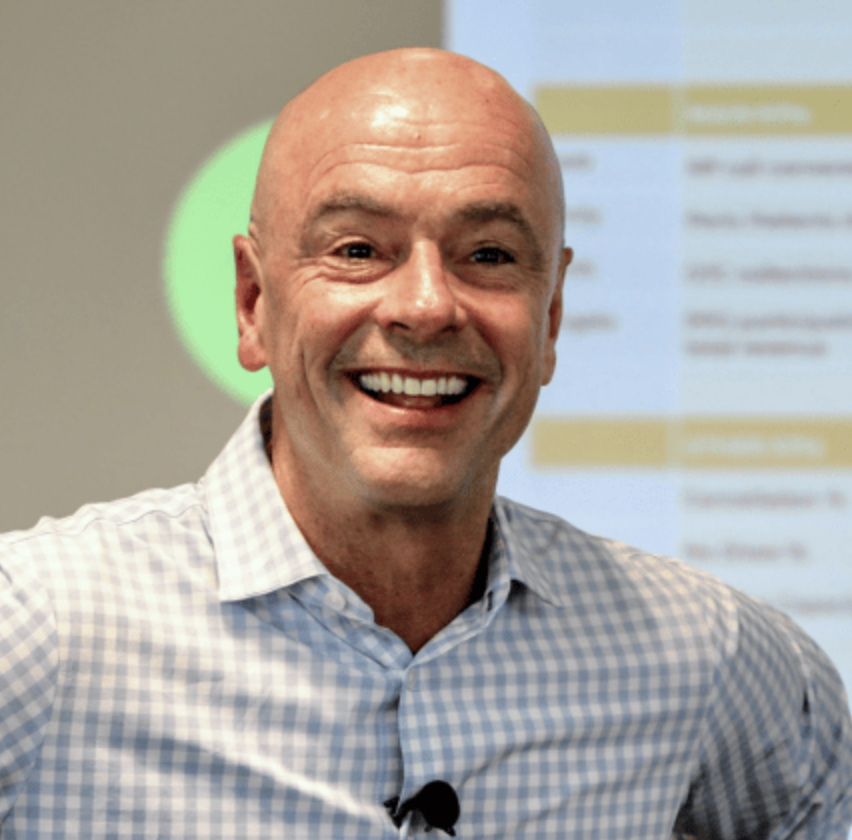There’s an incredibly high risk in dentistry of getting burned out, and it affects your entire life when that happens. You’re a different person—your family sees it, your friends see it, and your practice sees it. It becomes difficult to practice dentistry effectively if you’re constantly exhausted, so it’s vital that you make changes to ensure that you’re not putting too much strain on yourself. Take a look at your patient count—if you’re a single doctor with 3,000 patients, then you’re either perpetually exhausted or you’re not providing your patients with the appropriate level of care.
What’s in a Number?
There’s no one correct patient number set in stone that you must achieve—every practice is different—but a good guideline is 1,200 to 1,500 patients for a single doctor working four days per week. At this capacity the doctor will typically have two hygienists, so it breaks down to roughly 750 patients per hygienist. The number factors in spending roughly an hour with each patient to ensure they’re being cared for properly. Note that the more comprehensive care you provide, the lower your number can be, because you’re doing more for each patient.
The annual patient value is typically the first metric I look at when working with a new client, as it can tell me how stressed out the office is. The number I like to see is around $800, so when I see a team with a value of $250, I immediately know they’re exhausted. Exhausted teams don’t spend enough time with their patients, so it’s critical that you take the steps to make sure your practice runs smoothly and you’re not burning yourself out.
What Do You Want?
Kirk often says that “All roads lead to core values,” and that’s the case here. Think about what you want from your practice—what are your visions and goals for it? What kind of care do you want to provide to your patients? What kind of life do you want? Answer those questions and you’ll have a better idea of what your patient number should be. More doesn’t necessarily mean better, and you can run a successful practice and have a great life without wearing yourself out. You just need to think better about how you and your team can move in that direction.
Improving Your Practice
You don’t have to run the perfect practice, but there’s always something you can tweak to get better. Look at your capacity—how full is your schedule? You don’t want it to be full of holes, so work on filling the open time in it. The doctor’s schedule should be full 95% of the time, and the hygienist’s 92% of the time, so make sure you have policies and systems in place to keep the schedule tight:
- Have a short call list so you can get ahold of patients at a moment’s notice to fill cancellations
- Pay attention to your unscheduled treatment and re-care lists
- Don’t fill your schedule with patients you know will cancel
- Use an RFR (Reason for Return) to get patients to come back
Cancellations are a big detriment to a practice’s function, so it’s important to work on filling your practice with reliable patients. A smaller number of reliable, active patients is much more profitable than a large number of inactive patients who either don’t show or cancel.
Attrition, or the natural loss of patients, occurs at a rate of around 15%, so factor that into your patient count. If you have 1,500 patients, you’re losing 225 patients each year, so it becomes necessary to add more. When you feel the need to increase your patient number, however, first examine your active patient count—there’s often some unscheduled active patients you can get into the schedule instead of bringing on new patients. This will allow you to increase your productivity without potentially pushing yourself past your capacity, helping you to avoid burnout while also providing your existing patients with the appropriate care.
No practice is the same, so find what works for you. Your patient number may be different, but if you’re exhausted, you’ll know it, and then it’s time to make some changes. It’s so easy to fall into the mindset that “more, more, more” will make you wildly successful, but you can have such an amazing life without wearing yourself out. Like Kirk says, “Time is the new rich,” so give yourself the time to enjoy the life you’ve created. Contact the ACT coaches and let us work with you to examine your patient numbers and create a plan to build you a Better Practice, and a Better Life!
Angela Heathman is a Lead Practice Coach at ACT
Kirk Behrendt
Kirk Behrendt is a renowned consultant and speaker in the dental industry, known for his expertise in helping dentists create better practices and better lives. With over 30 years of experience in the field, Kirk has dedicated his professional life to optimizing the best systems and practices in dentistry. Kirk has been a featured speaker at every major dental meeting in the United States. His company, ACT Dental, has consistently been ranked as one of the top dental consultants in Dentistry Today's annual rankings for the past 10 years. In addition, ACT Dental was named one of the fastest-growing companies in the United States by Inc Magazine, appearing on their Inc 5000 list. Kirk's motivational skills are widely recognized in the dental industry. Dr. Peter Dawson of The Dawson Academy has referred to Kirk as "THE best motivator I have ever heard." Kirk has also assembled a trusted team of advisor experts who work with dentists to customize individual solutions that meet their unique needs. When he's not motivating dentists and their teams, Kirk enjoys coaching his children's sports teams and spending time with his amazing wife, Sarah, and their four children, Kinzie, Lily, Zoe, and Bo.
RECENT POSTS
876: The Kois-Coachman Digital Dentistry Event & The IntraOral Scanner Festival – Dr. Christian Coachman
April 18, 2025
Rest Isn't A Reward, It's A Requirement!
April 14, 2025
Data Snapshot: # of Office Days Open
April 11, 2025
Weather Any Storm: The Power of Focus
April 07, 2025
871: Metric Mondays: Gross Profit Percentage: The Health Indicator of Your Practice – Dr. Barrett Straub
April 07, 2025
Embrace Conflict to Unlock Trust
April 04, 2025

